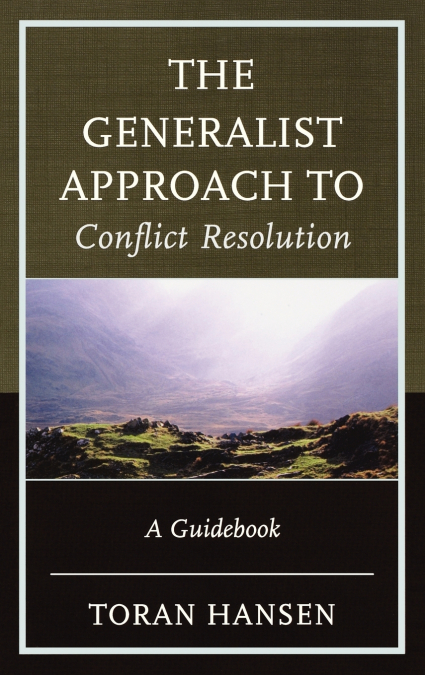
Dr. Toran Hansen / Toran Dr. Hansen / Toran DrHansen
This book outlines the generalist approach to conflict resolution. The approach was inspired by the generalist approach to social work but has now emerged in the fields of conflict resolution and peace studies. Essentially, the approach considers conflict resolution practice and scholarship very broadly. Generalist scholarship and practice are contrasted against specialized ways of conducting conflict resolution, whereby practitioners become well versed in one mode of practice or a specific theoretical orientation to scholarship. Several theories provide a foundation for this inclusive approach: conflict transformation, eco-systemic scholarship, the strengths perspective, and a new theory of social conflict, the theory of differences.The generalist approach is intended to provide a way for conflict resolution and peace studies scholar-practitioners to help diverse parties address complex conflicts at various levels (personal to international). Generalist scholar-practitioners assist parties to comprehensively and holistically address these conflicts, in a multi-layered, multi-level fashion, but they must be comfortable with ambiguity, monitor intervention complexity, and give parties control over how their conflicts are addressed. Ultimately, this may make parties more committed to their conflict interventions and outcomes.